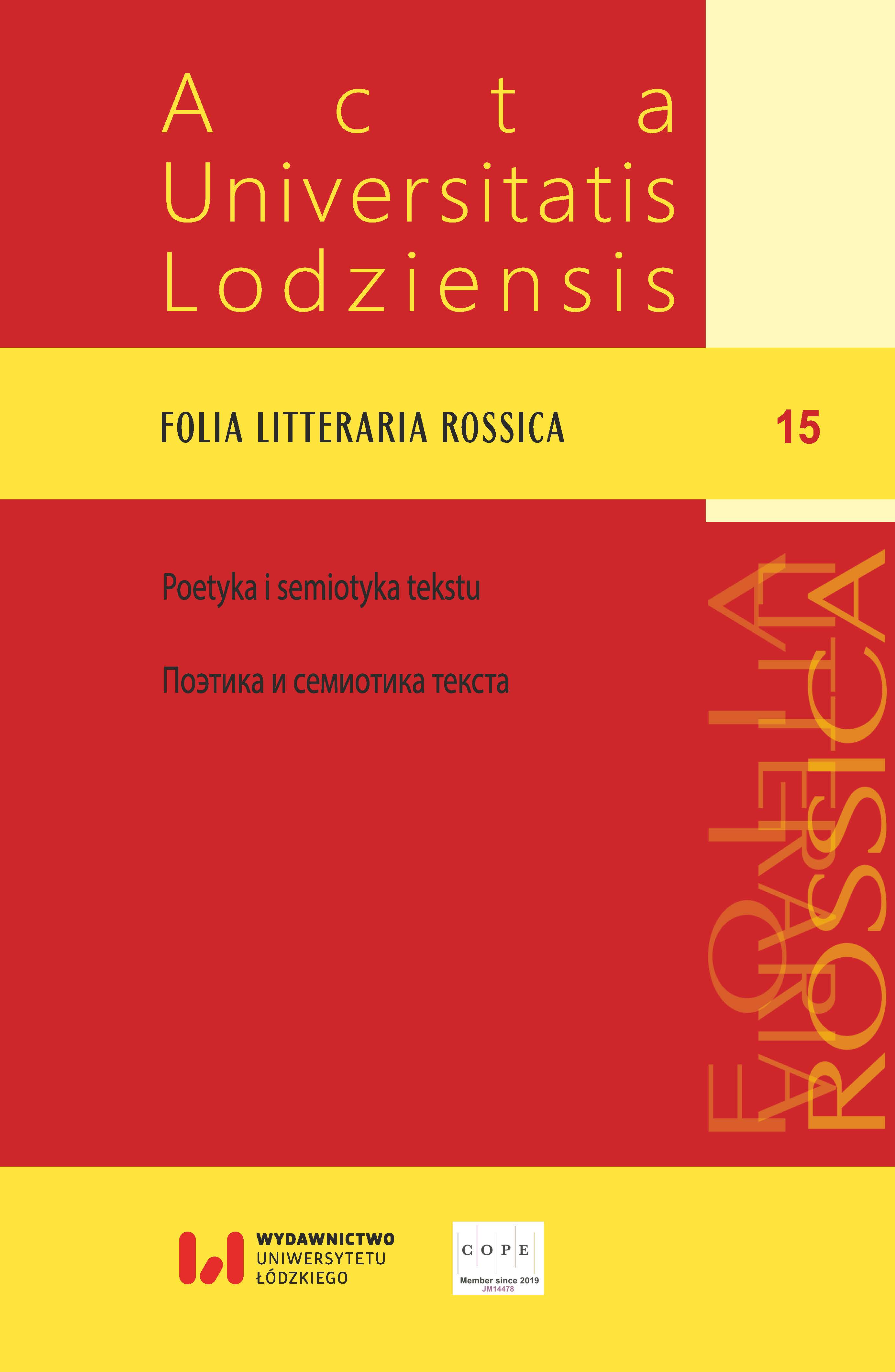“The Oval” by Mikhail Kreps: The Poetical Semantic of Time
DOI:
https://doi.org/10.18778/1427-9681.15.05Keywords:
“The Oval”, Mikhail Kreps, analysis, interpretationAbstract
The article offers a structural-semantic analysis and interpretation of Mikhail Kreps’ poem “The Oval” that so far has had no history of scholastic study. The poem is devoted to the traditional problem “man and time” , represented in the text by an artistic antithesis of two thematic motives – “man in time” and “time in man”, that are unfolding in the modus of existential choice. The poetic of the poem is oriented towards the proof of the second motive. In the course of the perception of the poem, the content-related changes in the author’s modality are traced that are expressed, on the one hand, in the polemic with some commonplace notions of time that had formed in the collective man’s consciousness, and, on the other, in the affirmation of time’s due comprehension. The contextual allusions, motif-linked reminiscences, and textual applications that participate in the realisation of the poem as an integral utterance are revealed and commented upon. On the whole, the reading of the text makes it possible to formulate its meaning. Human beings exist both in the linear, outward time with the faustian desire of an eternal instant, and in the circular, in-depth time that makes them involved in the eternity. Both instants are connected with the motif of individual immortality. The text offers two content-related variants of this motive. The first one, nominated in the very title of the poem, is as follows: the coveted attainment of the immortality-for-oneself in the linear time that ends up in personal death is rejected by irony as absurd. The second variant, the author’s, is such: a relative connection of a human being with eternity as the keeper of the phenomenal lives of those who passed away has a mnemonic nature and is realised in the memory about others, and their mnemonic immortality in the circular, ever-returning, and never-ending time grants a retentive human being individual immortality.
Downloads
References
Brodskii, Iosif. Sochineniya Iosifa Brodskogo: v 7 t., ed. Ya. A. Gordina. Vol. 3. Sankt-Peterburg: Pushkinskii fond, 2001.
Google Scholar
Goethe, Johann W. Izbrannye proizvedeniya: v 2 t., transl., ed. I. Solodunina. Vol. 1. Moskva: Pravda, 1985.
Google Scholar
Kreps, Mikhail. O poezii Iosifa Brodskogo. Sankt-Peterburg: Zvezda, 2007.
Google Scholar
Kreps, Mikhail. Oval. http://www.litkarta.ru/projects/ulysses/texts/content/kreps/
Google Scholar
Mandelshtam, Osip. Polnoe sobranie sochinenii i pisem: v 3 t., ed. N. G. Zakharenko. Vol. 1: Stikhotvoreniya. Moskva: Progress-Pleyada, 2009.
Google Scholar
Pasternak, Boris. Stikhotvoreniya i poemy, ed. L. A. Ozerov. Leningrad: Sovetskii pisatel, 1977.
Google Scholar
Surat, Irina. “Tri veka russkoi poezii”. Novyi mir. No 4 (2007): 174–186.
Google Scholar
Downloads
Published
How to Cite
Issue
Section
License

This work is licensed under a Creative Commons Attribution-NonCommercial-NoDerivatives 4.0 International License.












